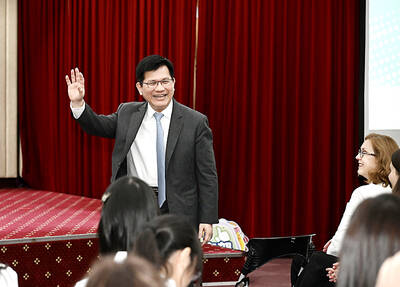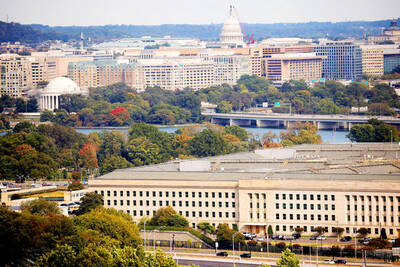Botswana for years was hailed as an economic success story, but a collapse in demand for the country’s diamonds has hit revenues hard and raised questions about an ambitious spending scheme.
Botswana produces 22 percent of the world’s diamonds, making it the top producer and accounting for half of government revenue. The country prides itself as a model of a successful African democracy.
However, last year, Botswana halved output and suspended much of its diamond activities as the global economic crisis hit its mines. High-end tourism, Botswana’s other economic mainstay, also took a hit as arrivals fell sharply during the recession.
Highlighting the nation’s difficulties, Standard and Poor’s rating agency last Monday downgraded Botswana’s sovereign credit ratings from A to A-, citing concerns over the country’s spending plans at a time of falling revenues.
“We expect this deterioration of public finances to translate into higher debt accumulation than we previously expected, and the gradual dissipation of the country’s asset buffers,” S&P credit analyst Veronique Paillat-Chayrigues said. “We believe that Botswana needs these buffers more than many similarly-rated peers to offset its economic and fiscal dependence on commodity exports, in particular diamonds, combined with its substantial development needs.”
For two years, the government has presented budget deficits due to limited funds and growing public expenditure, with this year’s deficit the largest yet.
Botswanan Finance Minister Kenneth Mathambo said in this year’s budget that the country will run a 12 billion pula (US$1.7 billion) deficit, representing 12.2 percent of GDP.
The shortfall will be financed by drawing on the government’s cash reserves, accumulated in surplus years, and by borrowing largely on the domestic capital market, he said in the budget.

FIREPOWER: On top of the torpedoes, the military would procure Kestrel II anti-tank weapons systems to replace aging license-produced M72 LAW launchers Taiwan is to receive US-made Mark 48 torpedoes and training simulators over the next three years, following delays that hampered the navy’s operational readiness, the Ministry of National Defense’s latest budget proposal showed. The navy next year would acquire four training simulator systems for the torpedoes and take receipt of 14 torpedoes in 2027 and 10 torpedoes in 2028, the ministry said in its budget for the next fiscal year. The torpedoes would almost certainly be utilized in the navy’s two upgraded Chien Lung-class submarines and the indigenously developed Hai Kun, should the attack sub successfully reach operational status. US President Donald Trump

Taiwan Semiconductor Manufacturing Co (TSMC, 台積電) is expected to start construction of its 1.4-nanometer chip manufacturing facilities at the Central Taiwan Science Park (CTSP, 中部科學園區) as early as October, the Chinese-language Liberty Times (the Taipei Times’ sister newspaper) reported yesterday, citing the park administration. TSMC acquired land for the second phase of the park’s expansion in Taichung in June. Large cement, construction and facility engineering companies in central Taiwan have reportedly been receiving bids for TSMC-related projects, the report said. Supply-chain firms estimated that the business opportunities for engineering, equipment and materials supply, and back-end packaging and testing could reach as high as

ALL QUIET: The Philippine foreign secretary told senators she would not respond to questions about whether Lin Chia-lung was in the country The Ministry of Foreign Affairs on Wednesday confirmed that a business delegation is visiting the Philippines, but declined to say whether Minister of Foreign Affairs Lin Chia-lung (林佳龍) is part of the group, as Philippine lawmakers raised questions over Lin’s reported visit. The group is being led by Deputy Minister of Agriculture Huang Chao-chin (黃昭欽), Chinese International Economic Cooperation Association (CIECA) chairman Joseph Lyu (呂桔誠) and US-Taiwan Business Council (USTBC) vice president Lotta Danielsson, the ministry said in a statement. However, sources speaking on condition of anonymity said that Lin is leading the delegation of 70 people. Filinvest New Clark City Innovation Park

DEFENSIVE EDGE: The liaison officer would work with Taiwan on drones and military applications for other civilian-developed technologies, a source said A Pentagon unit tasked with facilitating the US military’s adoption of new technology is soon to deploy officials to dozens of friendly nations, including Taiwan, the Financial Times reported yesterday. The US Department of Defense’s Defense Innovation Unit (DIU) is to send a representative to collaborate with Taiwan on drones and military applications from the semiconductor industry by the end of the year, the British daily reported, citing three sources familiar with the matter. “Drones will certainly be a focus, but they will also be looking at connecting to the broader civilian and dual-use ecosystem, including the tech sector,” one source was